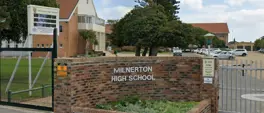FANA MOKOENA: The call to remove ‘Die Stem’ from our national anthem is a stand against racist apartheid history
Fana Mokoena
24 July 2024 | 9:15‘Die Stem’ is not merely a song; it is an anthem of oppression, a rallying cry for a regime that systematically enacted violence against black South Africans, writes Fana Mokoena.
The inclusion of ‘Die Stem’ in our national anthem in 1994 was a mistake that must be rectified. It must be removed.
The Nelson Mandela regime, in over-compensating for an elitist pact that hoped for a forced Rainbow Nation, forged an offensive new national anthem that included the apartheid anthem ‘Die Stem’ which, even at the time, raised eyebrows.
It was said to be in the spirit of reconciliation. However, this move unintentionally legitimised a key and central element of apartheid, and forced into a new democratic dispensation an acceptance of an offensive symbol of a past South Africa is still trying to erase from its social memory.
As we speak, the damage is already being felt.
During the National Assembly plenary on the budget vote for the Department of Sports, Arts, and Culture, Minister Gayton McKenzie defended the inclusion of ‘Die Stem’ in the South African national anthem.
This came after a challenge by the Economic Freedom Fighters (EFF) in Parliament which questioned the presence of this relic from our apartheid past.
McKenzie asserted that ‘Die Stem’ is part of who we were and who we have become, claiming it should be preserved to protect the “integrity of the national anthem.”
This response is incredibly disturbing, as ‘Die Stem’ is not merely a song; it is an anthem of oppression, a rallying cry for a regime that systematically enacted violence against black South Africans. It has no place in a country striving for true transformation and healing.
‘Die Stem van Suid-Afrika’ (the Call of South Africa), often referred to simply as ‘Die Stem’, was the national anthem of South Africa during the apartheid era.
The song was adopted as the co-national anthem of South Africa in 1957 along with the song of the British colonisers ‘God Save the Queen’. However, the song was first sung publicly in 1928 when the colonial/apartheid flag was first hoisted.
During apartheid, ‘Die Stem’ epitomised Afrikaner nationalist sentiment, and was predominantly sung by white South Africans, symbolising allegiance to a segregationist, oppressive, and violent South Africa, rooted in racist Afrikaner identity.
We cannot deny that every action of the apartheid regime was steeped in violence against black people to uphold power and privilege.
This includes their adoption of ‘Die Stem’ as a symbol, their motivation for atrocities like the Sharpeville massacre of 1960 where police slaughtered 69 peaceful protesters, the brutal suppression of the June 16 uprising where students were gunned down for demanding education, the systematic torture and extrajudicial killings at places like Vlakplaas, the forcible removals and land theft from black, Indian, and coloured communities, the imprisonment of liberation fighters at places like Robben Island, the targeted assassinations of leaders like Chris Hani, the banning of anti-apartheid activists, and the divisive creation of Bantustans that rendered black people foreigners in their own land.
‘Die Stem’ embodies and perpetuates this legacy of extreme cruelty and deep-seated hatred, for which there can be no redemption.
In fact, in a nation like Germany, it would not even be a question on whether this song should exist or not.
As a country that was involved in a Holocaust that saw millions being systematically murdered, the atrocities of the past are not only acknowledged - denying them is a crime. This commitment to remembrance and justice highlights the severity of those historical wrongs.
Yet in South Africa, the remnants of apartheid, like ‘Die Stem’, and even the apartheid flag, can be sung and displayed without any legal repercussion. This is a blatant disregard for the dignity, pain, and trauma of Black South Africans. It is a slap in the face to those who suffered and continue to suffer the consequences of apartheid.
While the apartheid flag was replaced in 1994 by the new flag, it continued being used by racist organisations and individuals until was officially banned by a court of law in 2019 by Judge Mojapelo, who in his finding decreed: "Displaying [the apartheid flag] is destructive of our nascent non-racial democracy… it is an affront to the spirit and values of botho/ubuntu, which has become a mark of civilised interaction in post-apartheid South Africa".
The question then arises, if this is the case with the apartheid flag, and if the flag and ‘Die Stem’ were born at the same time and used by the same regime for the same purpose, why did ‘Die Stem’ remain in the life of our society as the beacon of reconciliation? Why did we not ban it as we did its sister symbol of apartheid?
Minister McKenzie's assertion that ‘Die Stem’ is part of who we were and who we've become is a dangerous oversimplification. The inclusion of ‘Die Stem’ does not signify progress; it signifies a reluctance to fully break free from the chains of our oppressive past.
To argue that we must preserve it to protect the integrity of the national anthem is to ignore the very real and enduring wounds it represents. It is not about living in the past; it is about acknowledging that certain symbols of our past have no place in our present or future.
It is clear, however, that our right to any form of reconciliation or reparations has long passed, as the descendants of apartheid still hold onto these relics. They do not even acknowledge that apartheid was a human rights violation. They take us to court for singing struggle songs like ‘Kill the Boer’; they comfortably build segregated communities like Orania; and continue to call us “kaffirs” and “monkeys” to our faces.
And yet, for some reason, these are the same people the African National Congress (ANC) has decided to form a government with. Which means we are further away from any form of transformation, as Minister McKenzie willingly stands along with the other house negroes in protection of their white masters, to the detriment of African people.
The EFF will continue to champion this cause of removing ‘Die Stem’ from our national anthem, standing firm against any attempts to preserve symbols of our oppression under the guise of national integrity.
As we have done in all EFF celebrations, as we mark our 11th anniversary in Kimberley, Northern Cape, on July 27th, we will continue to proudly sing the true national anthem without ‘Die Stem’.
We will unite in singing the complete hymn by Enoch Sontonga, ‘Nkosi Sikelel' iAfrika’, a song that embodies our struggle against oppression, honouring our history, the enduring resilience of our people, and the visionary leaders who paved the way for the economic freedom movement we champion today.
‘Die Stem’, a symbol of apartheid, has to go. It cannot continue enjoying legitimacy in a society trying to erase its apartheid past.
To allow it to continue existing is to accept defeat against a regime we buried 30 years ago.
Fana Mokoena is an EFF member of Parliament.
Get the whole picture 💡
Take a look at the topic timeline for all related articles.

![[WATCH] French president Emmanuel Macron's 'Top Gun' Davos moment goes viral [WATCH] French president Emmanuel Macron's 'Top Gun' Davos moment goes viral](https://media-cache.primedia-service.com/media/a2aorav1/afp__20260120__93d48q9__v1__highres__switzerlandpoliticseconomydiplomacy.jpg?width=264&height=113&v=1dc8ac1c43919f0&format=webp)














